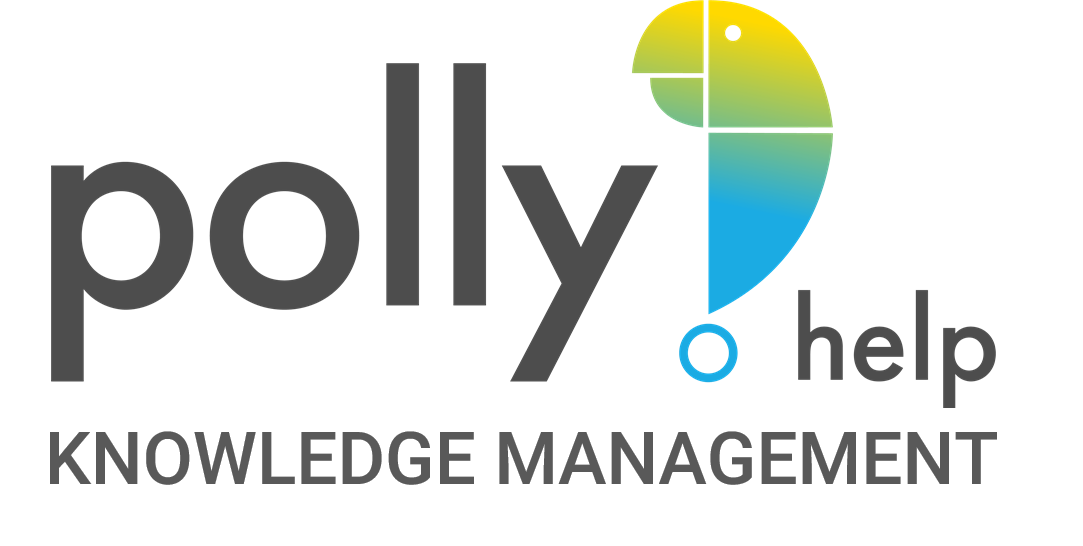As you navigate the ever-evolving tech landscape, you might notice a rising trend – the resurgence of knowledge management projects. In a reality shaped by remote and hybrid work environments and sophisticated artificial intelligence tools, the way we manage our collective knowledge has become a focus for tech companies. Let’s delve into some revealing tech sector success stories and explore the empowering strategies at work in the technology industry’s KM implementations.
Knowledge Management encapsulates more than just organizing principles or aesthetic methodology; it’s a strategic tool for harnessing the multi-faceted power encoded in business information. With well-executed KM strategies, companies can secure their competitive edge, drive innovation, and respond rapidly to market changes. From sophisticated onboarding practices to customer-support enhancements and regulatory compliance, KM offers a wealth of use-cases deserving exploration.
Key Takeaways
- The strategic importance of knowledge management projects in the tech sector is escalating.
- Rapid advancements in AI and machine learning are revolutionizing KM implementation strategies.
- Effective KM is pivotal for managing the transition to remote and hybrid work environments.
- Successful KM strategies highlight the intrinsic connection between knowledge management and business success.
- Maintaining regulatory compliance and providing customer support are just two examples of practical KM uses.
The Resurgence of Knowledge Management in Tech Companies
Today, we’re witnessing a paradigm shift unlike any other – a knowledge management resurgence. In the realm of tech companies, this revival is driven by a medley of factors, from structural changes in the work sphere to astounding technological breakthroughs. Let’s delve in to examine the causes and implications of this resurgence effectively.
Foremost among these catalysts are the developments in the way we work. The COVID-19 pandemic has induced a swift transition to hybrid work models. As more organizations adopt this format, the need to swiftly capture and transfer knowledge is more relevant than ever. This is especially crucial in tech companies, where the mitigating brain drain is a perpetual challenge.
Technology has kept up with these demands, with artificial intelligence (AI) in KM playing an increasingly decisive role. Contemporary AI applications, especially knowledge graphs, have broadened the horizon of possibilities and ignited this resurgence. Let’s look at how AI-fueled tools are reshaping the KM landscape within tech companies:
- Knowledge graphs: Powerful visualization tools facilitate better comprehension and retention of complex data.
- Large language models: Automate the synthesis of massive unstructured datasets into actionable insights.
- AI-driven search functionality: It drastically reduces time spent on data retrieval, ensuring that the right information is accessible when needed.
With the advent of these technologies, knowledge management is no longer a back-burner issue, but a priority imperative. Companies are vigorously pursuing KM initiatives not just as added value, but as a critical operation. By effectively sharing, managing, and utilizing the collective intelligence within their organizations, they can mitigate the loss of expertise and preserve their competitive edge in the market.
All things considered, it’s clear that we’re experiencing a KM renaissance fueled by changes in work norms, AI advancements, and an urgent need to harness organizational knowledge. As more tech companies discern the potential of KM, the future promises an era of enhanced collaboration and maximized collective intelligence.
Successful Knowledge Management Projects in Modern Organizations
Progressive companies today emphasize the role of Knowledge Management (KM) as a strategic utility that commands center stage in their operational and competitive toolkits. Successful KM implementations underscore the ability of these organizations to juxtapose explicit and tacit knowledge creatively, extracting their benefits and bundling them into intelligence parcels to accelerate business value and competitive advantage. Here, we delve into the critical factors that enable such integration and foster an environment conducive to KM optimization.
Integrating Explicit and Tacit Knowledge
Effective KM starts with an understanding of the two main types of knowledge: explicit and tacit. While explicit knowledge, easily shared in the form of manuals, instructions, or procedures, sets the operational baseline, it’s the implicit or tacit knowledge that binds contextuality and individual expertise into raw actionability. The ability to capture this tacit knowledge from within the organization, refine it into comprehendible forms, and distribute it effectively forms the crux of tacit knowledge integration.
Maximizing Returns: The Business Value of KM
The business value generated through successful KM implementations can be monumental. Essentially, a well-deployed KM effort ensures that knowledge, once created, becomes a cyclical asset for the organization. It gets shared, reused, and enriched, fostering a culture of learning that eventually translates into improved productivity, efficiency, and overall performance.
KM Systems and Competitive Advantage
And finally, the real advantage emerges when KM is not merely seen as a linear function but as an integrated system. When knowledge creation, sharing, and application, administered through efficient KM systems, become ingrained within the strategic fabric of the organization, it allows companies to leverage knowledge as a source of competitive advantage. Such an approach ensures a constant flow of innovative insights leading to enhanced customer value and a robust market position.
Thus, in the grand scheme of things, not only does Knowledge Management consolidate and streamline knowledge but it also aids in the ignition of new knowledge, thereby giving modern organizations the leading edge in an increasingly competitive marketplace.
Strengthening Knowledge Sharing Across Remote Teams
The switch to remote work globally is no longer a growing trend but a reality of today’s work environment. This transformation presents unique challenges, particularly around knowledge sharing and collaboration. Confronted with these challenges, tech companies are leveraging Knowledge Management (KM) strategies that encourage information exchange and collaboration among dispersed teams.
The first part of this strategic response is the creation of virtual collaboration spaces that promote engagement and interaction among remote team members. These platforms allow teams to engage and collaborate in real-time, breaking down barriers that might otherwise hinder effective communication.
- Virtual whiteboards to visualize brainstorming sessions or collaborative planning.
- Online workspaces that integrate document sharing, task tracking, and communication tools.
- Cloud storage solutions that house team resources and project materials.
The second part of their approach revolves around a conscious re-design of communication channels. The goal is not just to support communication, but to enhance it — to make it a reliable, effective, and enjoyable channel for knowledge transfer.
- Emphasis on open questioning to stimulate ideas and foster discussion.
- Creating regular, dedicated time for team discussions and mingling.
- Using tools and techniques that foster active listening and understanding.
- Shifting towards a blend of synchronous (real-time) and asynchronous (delayed response) communication to accommodate different time zones and work schedules.
At the heart of these strategies, tools, and platforms are the principles of knowledge sharing and effective communication. By understanding how to leverage these for remote work, businesses can ensure that their teams stay connected, informed, and engaged, bolstering productivity and innovation, regardless of where their employees are located.
How Knowledge Management Powers Onboarding and Continuous Learning
In the vibrant tech industry, successful integration and retainment of new talent are often defined by the efficiency of the onboarding process. Here, Knowledge Management (KM) plays an instrumental role, meticulously engineered to pass on vital knowledge starting from day one of an employee’s journey. This system drives the heart of effective KM in onboarding, making the assimilation a worthwhile experience for every new team member.
It goes further to advocate for continuous learning culture within the organization. Thanks to KM, employees can plug into a rich learning ecosystem that promotes skills enhancement and personal development. This system puts knowledge at the point of need, providing resources just when the learner requires them.
- Figuring out the areas where knowledge is needed the most by employees.
- Designing learning content relevant to specific work responsibilities.
- Continuously updating and refining learning content as per industry changes and improvements.
- Keeping track of individual learning paths and offering needed support.
One obvious outcome of this process is improved employee satisfaction. When employees have easy access to the knowledge they require, and can develop their skills on a continuous basis, their job satisfaction increases significantly. This has twin benefits; it not only enhances productivity but also plays a crucial role in employee retention—a key aspect in an industry known for a high degree of job mobility.
Undoubtedly, the potency of KM in onboarding and promoting continuous learning within tech companies is a game-changer. It paves the way for a well-informed and agile workforce that is better equipped to respond to the ever-dynamic demands of the technology sector.
Case Study: Boosting Customer Support with KM Initiatives
It’s well-known that organized, efficient knowledge management is pivotal in driving customer satisfaction and support enhancement in the tech industry. This section will dive into the pertinent details of how organizations streamline customer support operations effectively leveraging knowledge management. The primary goals here are enhancing customer experience, reducing call resolution times, and ultimately, increasing overall customer satisfaction and retention.
One of the incredible feats of knowledge management is the ability to build comprehensive knowledge bases. This is done by compiling and organizing all pertinent information related to a company’s products or services. Such knowledge bases serve as a valuable resource for agent support, allowing them to resolve customer issues promptly and adequately.
But how is it implemented effectively? And what are the specific advantages borne out of these? This calls for a deeper dive into the process and benefits of knowledge base optimization.
- Robust Content Governance: This involves establishing clear guidelines for how content is created, updated, organized, and archived. This promotes consistency in the way all information is presented and utilized, helping to avoid redundancy and confusion.
- User-friendly Interface: Having a well-structured and intuitive interface makes it easier for customer support agents to navigate the knowledge base, find the information they need, and use it to help customers in a timely manner.
- Continuous Improvement: By analyzing usage data and feedback, organizations can continually refine their knowledge base to few potential gaps and progressively improve the customer support experience.
With these systems in place, KM-driven call centers function at their peak, positively affecting customer satisfaction, loyalty, and the company’s overall revenue. The table below provides an illuminative juxtaposition of the benefits derived from such an initiative.
| Benefits | Outcomes |
|---|---|
| Enhanced Customer Experience | Increased customer satisfaction rates |
| Streamlined Support Operations | Reduced call resolution times |
| Effective agent support | Improved customer retention |
| Optimized Knowledge Base | Positive impact on overall revenue |
In conclusion, as this case study illustrates, knowledge management plays an indispensable role in enhancing customer support operations, thereby taking customer satisfaction a notch higher, easing the work of agents, and positively impacting overall business performance.
The Evolution of Self-Service Portals Through Knowledge Management
The dynamic landscape of today’s tech industry necessitates agile, user-centric solutions. No development perhaps encapsulates this more effectively than the evolution of self-service portals through Knowledge Management. As these portals have evolved, they’ve revolutionized the ways both employees and customers can access information.
Integrating Knowledge Management into the design and function of self-service portals results in more intuitive and easily navigable systems. These state-of-the-art platforms allow for rapid responses tailored to the unique inquires of each user.
This sort of customization not only enhances user experience but also optimizes the use of internal resources. With individuals empowered to access information on-demand, there’s a reduction in the reliance on dedicated support resources.
The impacts of these changes aren’t just seen in increased user satisfaction, although that is a crucial aspect. There are also substantial cost savings associated with the reduction of one-on-one support. Further, users empowered with information access often make more informed decisions, further boosting efficiency.
With these benefits, we can’t overstate how crucial the evolution of self-service portals has been in shaping the current digital landscape.
Fostering Innovation and Idea Generation with KM Practices
Knowledge Management (KM) practices are not only about preserving wisdom within organizations but also about leveraging this intelligence to induce innovation and generate valuable ideas. Promoting technology-based knowledge sharing, creating dynamic and intuitive collaborative spaces, and cultivating communities that practice innovation are the stepping stones to constructing a knowledge culture which underpins success in today’s high-tech landscape. Let’s dive deeper into these aspects.
Virtual Collaboration Spaces
Virtual collaboration spaces, designed with a focal point on efficient knowledge transfer and teamwork, serve as breeding grounds for new ideas. They pave the way for transparency, empower employees to learn from each other, and foster a KM culture where innovative ideas can be freely proposed, discussed, and refined. Through these digital platforms, your team can brainstorm, iterate, and eventually cultivate inventive ideas that move your organization forward.
Communities of Practice and Its Impact on Innovation
Within the KM framework, communities of practice refer to groups of people who share a common interest or passion and learn from each other. This could be a team within your organization or a network of industry professionals. By encouraging active dialogue, resource sharing, and learning within these communities, your organization can tap into a wellspring of diverse ideas—leading to the generation of fresh perspectives and unique solutions for your business challenges.
Organizational Knowledge Sharing Cultures
At the heart of all successful idea generation and innovation fostering is a strong knowledge-sharing culture. An environment where knowledge is freely exchanged, where every query is a learning opportunity, and where ideas are received with interest, enhances creativity and invention. It inspires your teams to think beyond the box, spurring innovation that transforms your business and sets it apart in the competitive tech industry.
Implementing strong KM practices is not just vital to safeguard corporate intelligence. It is key to igniting innovation, stimulating idea generation, and driving your organization to new heights of strategic success.
Meeting Regulatory Compliance with Enhanced Information Management
In today’s fast-paced tech industry, staying ahead means wrangling stringent standards of regulatory compliance. One of the primary solutions to this challenge is an effective Knowledge Management system. It’s not just about storing and organizing data; it’s about creating robust information management practices that facilitate content accuracy and relevance.
Building an accurate and updated database of knowledge is crucial in promoting content governance, which can significantly assist firms in eliminating outdated or incorrect content. This approach aids in minimizing exposure to legal risks, ensuring that firms eternally are within the accepted standards of regulatory compliance. The consequence? A significant risk reduction and the evasion of potential fines and liabilities.
Think of it as a digital housecleaning task. When the information is properly managed, each piece of data, old and new, is assessed for value and relevance. Anything outdated, inaccurate, or irrelevant is discarded, making space for new, accurate, and relevant content.
The resultant level of legal conformity does not just protect the company from possible legal troubles but also affirms the company’s credibility and trustworthiness in the eyes of its stakeholders, including employees, clients, and investors.
| Benefits of Improved Information Management |
|---|
| Assists in meeting the stringent standards of regulatory compliance |
| Facilitates robust content governance to ensure accuracy and relevance of data |
| Reduces legal risks by eliminating outdated or incorrect content |
| Prevents potential fines and liabilities due to non-compliance |
| Fosters trust and credibility among stakeholders |
Remember, managing information isn’t just about compiling and storing data; it’s about making that data work for you in maintaining compliance, reducing risks, and ultimately enhancing the overall value of your organization in the tech industry.
Revolutionizing Tech Sector Performance with KM
Our journey into the fascinating world of Knowledge Management (KM) now takes us to the bustling tech sector. Here, the implementation of KM strategies takes center stage, playing a crucial role in revolutionizing organizational performance. Tech companies have embraced the KM revolution, recognizing its potential in laying a strong foundation for their organizational transformation.
The essence of these transformative strategies lies in the ability to navigate the complex, ever-evolving tech landscape and harness the power of km. This knowledge-based approach is what differentiates successful tech companies, their ability to convert knowledge into efficient performance strategies which keeps them ahead in this competitive industry.
Think of this as gravitational pull in space. In the tech sector, KM is that pull, gathering and consolidating bits of information, knowledge, and insights. The resulting force then propels these organizations forward, allowing them to adapt nimbly to changes, foster innovative solutions, and maintain a competitive edge. In essence, the greater the KM revolution, the stronger the pull and consequently, the further the leap forward.
The beauty of this transformation is in its detailed and systematic approach, which allows for the clear translation of knowledge into actionable strategies and processes. In today’s fast-paced digital world, the ability to evolve and adapt at speed is critical. Engaging the gears of KM, tech companies have harnessed this ability, enabling them to maintain robust and efficient performance, thereby solidifying their standing in the tech industry.
So, your mission should you choose to embark on it, is to recognize the revolution that KM represents and harness its transformative power. In your path to KM mastery, remember that the real power lies in moving beyond knowledge acquisition and into knowledge application, a transition that stands at the heart of its game-changing potential. It’s time to buckle up and dive into the KM revolution headfirst. Let the performance transformation in your organization begin!
Conclusion
As we wrap up this exploration into successful Knowledge Management (KM) projects, clear insights have emerged about the pivotal role KM plays in the technology sector. By synthesizing explicit and tacit knowledge, fostering a culture of knowledge sharing, and strategically investing in KM, tech companies can turn collective brainpower into a formidable competitive advantage.
Key Takeaways from Successful Knowledge Management Projects
Drawing from KM project takeaways, it is evident that companies who actively and systematically manage their knowledge assets are more adept at innovation and have better operational performance. The integration of explicit and tacit knowledge enhances their ability to create value, while a strong culture of knowledge sharing ensures that vital insights are not lost in the hum of busy daily operations. Successful KM initiatives don’t happen by accident – they’re the result of deliberate strategies and investment.
Future Directions for KM in the Tech Industry
Peering into the future of KM, things look promising. Advancements in Artificial Intelligence and machine learning are set to further enrich KM practices. It’s predicted that a greater emphasis will be placed on creating more intense collaborative environments and refining information systems. These will better encapsulate the vibrancy and innovation of the tech sector. Today’s tech companies are steering towards a more knowledge-centric future, aligning perfectly with the tech industry trends and further reinforcing the necessity of robust KM practices.
As you navigate the intricacies of KM, remember the lessons from these success stories. Balancing access with the control of information, creating workplaces where knowledge sharing is second nature, and continually leveraging technology to augment your KM practices can, and will, lead to significant benefits for you and your organization.






